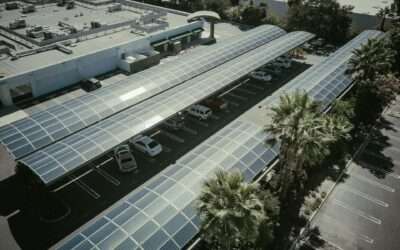The EU Green Deal is a comprehensive plan to make the European Union climate-neutral by 2050. It’s a bold vision that aims to transform the EU’s economy into a sustainable one, while improving the quality of life for its citizens. As a business owner or entrepreneur, it’s important to understand the implications of this initiative and how you can contribute to it.
Firstly, the EU Green Deal presents a huge opportunity for businesses that can help achieve its objectives. This includes companies that develop sustainable products, services and technologies that reduce emissions and waste, as well as those that improve energy efficiency and promote circular economy practices. By embracing these opportunities, businesses can not only contribute to a greener future but also create new revenue streams and tap into a growing market demand for sustainable solutions.
At the same time, businesses that fail to adapt to the changing landscape may face significant challenges. The EU Green Deal will require significant changes to business operations, supply chains, and consumer behaviors. As such, businesses need to be proactive in identifying potential risks and opportunities, and adapt their strategies and operations accordingly.
Another important aspect of the EU Green Deal is the need for collaboration and partnerships. Achieving climate neutrality will require coordinated efforts across different sectors and stakeholders, including businesses, governments, and civil society. Businesses can play a crucial role in driving collaboration and partnerships, by sharing knowledge and expertise, promoting sustainable practices, and advocating for policies that support the transition to a sustainable economy.
The EU Green Deal includes a wide range of policies and measures that will transform the way we produce, consume, and live. Some of the key areas of focus include:
- Clean Energy: The EU plans to increase its share of renewable energy sources to 32% by 2030 and improve energy efficiency by at least 32.5% by the same year.
- Sustainable Mobility: The EU aims to reduce transport emissions by 90% by 2050 and promote the use of clean and sustainable modes of transport such as electric vehicles, cycling, and walking.
- Circular Economy: The EU will promote a circular economy that minimizes waste and maximizes the use of resources, reducing the consumption of natural resources and the production of waste.
- Biodiversity: The EU Green Deal includes measures to protect and restore biodiversity, such as increasing the area of protected land and promoting sustainable agriculture.
- Sustainable Finance: The EU will promote sustainable finance by redirecting investments towards sustainable activities and developing a taxonomy to classify sustainable economic activities.
Overall, the EU Green Deal presents both opportunities and challenges for businesses. To thrive in this new era, businesses need to be proactive, innovative and collaborative, while staying true to their core values and principles. By doing so, they can contribute to a more sustainable and prosperous future for all.



